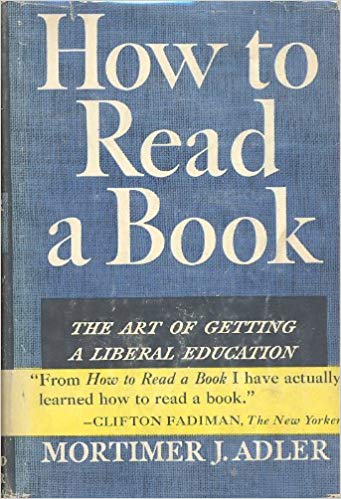Memoir-Writing Class Opportunity
Two-Week Window to Register for Karen Mains’ Memoir-Writing Teleconference Class!
Years
ago, it became clear to me that writing classes were dangerous for me!
Nothing choked my creative capabilities any quicker than attending a
seminar with a title like “How to Become a Better Writer.”
I
realized that these sessions, taught by writing gurus, did a great job
of presenting their well-established teaching routines, many of which they
had taught in workshops or plenary addresses in conferences all
across the country.
What I really needed, I decided when my expressive
juices turned toxic after attending a few of these professional
gatherings, was someone who would help me discover and feel free to
express my unique writer’s voice.
The same thing can happen
to me when I read books on becoming a best-selling author (can anyone
really guarantee this?). The production wheels inside my creative soul
often grind to a stop, jammed as I attempt to consider how to
manipulate my peculiar writing style into someone else’s successful
formula.
Recently, while reading a book on How to Be a More Successful Writer,
I could feel my inner scrivener starting to choke. However, I knew the
author of this particular work personally, and realized that all his commendations
about discarding half of what you’ve written as a general rule to
self-editing and of using the simplest word choices, was something that
applied to his own particular voice more than it did to mine. His
recommendations as to how to improve his reader’s writing style fit him
better, perhaps, because they had been successful for him. Many books
published. The eventual CEO of a well-know publishing house. Finally,
an executive position in a large foundation that granted substantial funds to
deserving grantees.
What I really needed to find were
coaches who did not so much advocate for grammatical correctness or
minimalist styles, but who could help a writer wanting to discover the
beauty of his/her own voice. Someone who could free the creative inner
self to keep the quirkiness and guard against destroying the passion;
someone cautious about quashing my individual expression that made a writer
unique.
And I have found those wise souls within the
apparatus of publishing. Some of these rare folk are content editors,
who generously scoured my manuscripts, going page-by-page over the red
editing marks and insisting I enter the ego-depleting door marked REWRITE! And believe me, my submitted manuscripts are always
filled with editors’ red marks, with many comments written in the
columns and with worrisome post-it notes indicating where rewriting
attention needs to be applied.
Nevertheless, I am of the school that
insists: Fine writing is a matter of re-writing, letting the work
cool for a little while, then re-writing and re-writing again. But I
also want to keep the distinctives that make me the writer that I am
and am still becoming.
This dilemma of copycat
writers turning out formulaic copy is best solved by finding a writing group
with differing opinions, a generous and honest reader/commentator, or just a good
friend—all of whom will give you their honest opinions as to what you
do well and where you need to improve.
This is one of the
reasons I fit in memoir coaching every few years. The voice we use to
tell a hilarious story out of our past or out of the recent days of our
lives is often close to the one we want to express when we’re writing
out those incidents in our memoirs. The laughter we capture from others
who hear our tale, or the honest anguish they express at our
something-gone-wrong-incident, is vital. It is real—as is the voice we
use, our own voice, when we verbally share with others about the things
that have happened in our lives. Somehow, with this kind of
real audience in mind, our telling (or our writing) stays authentic, and
avoids the formulaic sorts of approaches imposed by many of the gurus
who want to teach us how they think writing should be done.
I
am of a generation, before the advent of screen-here; screen-there:
screen-screen everywhere days, that spent its meals and evenings and
gathering times laughing or commiserating with the storytellers in its
midst. And as a child, now an adult looking back, it seems to me that
everyone born decades before my own told captivating tales.
Consequently,
I am offering two telementoring classes that will meet twice a month
from February to June. One class will meet every other Tuesday at 9
a.m. (Central Time), and the other class will meet every other Thursday
at 7 p.m. The classes run from February 4 through June 9. The cost to
register is $500.
If you are concerned about keeping your unique voice or finding it, more information is available at https://wwwlifelaunchme.com/memoirs. Click this link to for a fuller description of the course and to register.
Six
people have signed up so far, we can fit another 4-6 folk into the two
groups. If you are wanting to be a part of this unique opportunity,
wisdom might advise you to act quickly. Our goal is to help you discover and protect your unique voice.
Karen Mains
Reminder!
The Soulish Food e-mails are
being
posted biweekly on the Hungry Souls Web
site. Newcomers can look that over and decide if they want to
register on the Web site to receive the biweekly newsletter. You might
want to recommend this to friends also. They can go to www.HungrySouls.org.
Hungry Souls Contact InformationADDRESS: 29W377 Hawthorne Lane
West Chicago, IL 60185
PHONE: 630-293-4500
EMAIL: karen@hungrysouls.org
|
|

Karen Mains
I am of the school
that insists: Fine writing is a matter of re-writing, letting the
work cool for a little while, then re-writing and re-writing again.
BOOK CORNER
 How to Read a Book How to Read a Book
by Mortimer Adler and Charles Van Doren
Good writers are ALWAYS good readers. This classic: How to Read a Book: The bestselling guide to reading books and accessing information by Mortimer Adler and Chares Van Doren is a must for wannabe writers (or thinkers or folk who keep self-educating).
How to Read a Book
(according to the back-cover copy) is the “best and most successful
guide to reading comprehension written for the general reader. ... The
book contains essential tips on how to read: History, Science,
Mathematics, Philosophy, Fiction Drama, Poetry, Biography, Current
Events, Manuals, Social Science and Scripture."
This
obviously is a comprehensive guide; its initial best-selling edition in
1940 became an indispensible tool for the dedicated reader.
This
is a book I like to take off the shelf. The chapter “Coming to Terms
With An Author” might give some developing writers insight into what it
is they are doing when they are writing (or what it is they should be
doing) through the eyes of that crucial demographic—the mind and
thoughts of the all-important reader.
WARNING: The writing
is a little dense, written as it was in the 1940s, but for the serious
learner, it is a intriguing twist in time, and diligence in attending
to its message brings rewards.
A more-accessible book for the modern reader is On Writers & Writing
by John Gardner, who has in many ways, through his works, been a mentor
to me. This is an introduction to contemporary writers, well-know and
some lesser-known, with Gardner’s frank opinion of them, both good and
bad! Makes you want to read all those authors he examines. Most
worthwhile is his critique of literature. The mashup in my own Tales of the Kingdom
Trilogy between fairy tale, fable and allegory is a direct response to
Gardner’s observations that genre-crossing often creates great and
lasting literature.
|

